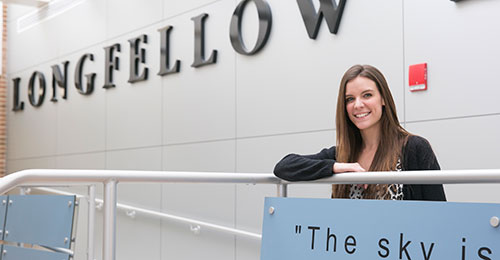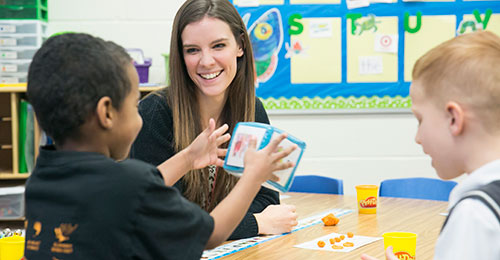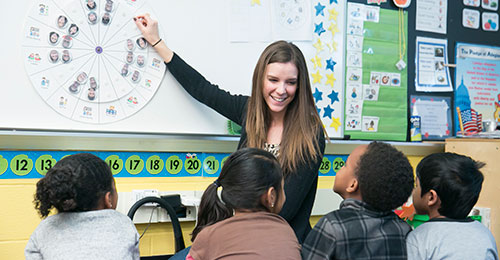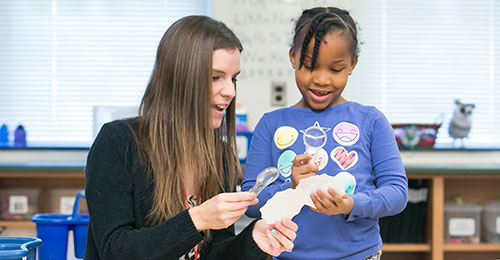Kate Graham, Kindergarten Teacher, Longfellow Elementary School
February 4th, 2016

Kate Graham, at Longfellow Elementary School, believes in offering her kindergarteners “structured, play-based choices, developmentally appropriate for young learners.” She helps her 20 “little ones feel independent and successful” on a daily basis through morning meetings, which involve moving their bodies to music; language arts; math; recess; quiet time; P.E., art, music, technology or media activities; and self-selected activity centers, such as blocks, cars, art or housekeeping.
Graham is passionate about teaching her students because learning at the kindergarten age is “magical” and full of excitement. Early childhood education is “where my heart is because it’s a time for them to develop a love for learning,” Graham said. Growing up with her mom a kindergarten and first grade teacher, Graham believes teaching is “in the blood,” she said.

Graham first joined the HCPSS as a kindergarten and 2nd grade student teacher at Swansfield Elementary School and special education substitute at Waverly Elementary School, while working on her master’s in elementary/early childhood education at Johns Hopkins University. Upon graduating from her master’s program, Graham wanted to continue teaching in Howard County and has taught at Longfellow, as a 1st grade teacher and now as a kindergarten teacher, since 2010.
“I think the resources are amazing here,” Graham explained. “In Howard County, we’re given opportunities to grow and try new things. I had fabulous mentors at Swansfield; they showed me how to be the teacher I wanted to become. It’s where I learned my teaching techniques, so it just made sense to stay.” Graham has since taken on additional responsibilities, such as a member of Howard County’s Instructional Intervention Team and the Kindergarten Transition Workgroup, and a mentor to Towson University interns.

Graham’s enthusiasm and drive led her to invent KinderWheel, a carefully organized cycle of language arts and math workstations supporting early education differentiated learning and choice making. The inner wheel, with the kids’ faces as spokes, spins and disperses the students to the different centers. The wheel ensures the students are regularly working on key activities–such as guided reading, reading to self and discovery table for language arts; and number writing, counting collections and group games for math. At each workstation, the students can decide how to use the materials and what product to develop, while interacting with peers of various levels.
After developing KinderWheel for six years, Graham is ready to share the concept with as many teachers as possible. She presented KinderWheel to HCPSS teachers last year at an early childhood professional development session, and this spring she will reach a statewide audience when speaking at the State of Maryland International Reading Council conference. Graham, who wants KinderWheel to “take off,” is working on getting published on the topic as well.

Graham is described as “overall simply amazing” by her principal, Laurel Marsh, who continued with, “Kate has an innate ability to differentiate her instruction to meet the diverse needs of the students in her class, while also fostering their independence. She is able to make adjustments to her lessons in the moment and seizes on teachable moments. She has an extensive repertoire of instructional strategies and is always reflecting and seeking out new information to find the best approach for each individual student.”
 HCPSS
HCPSS